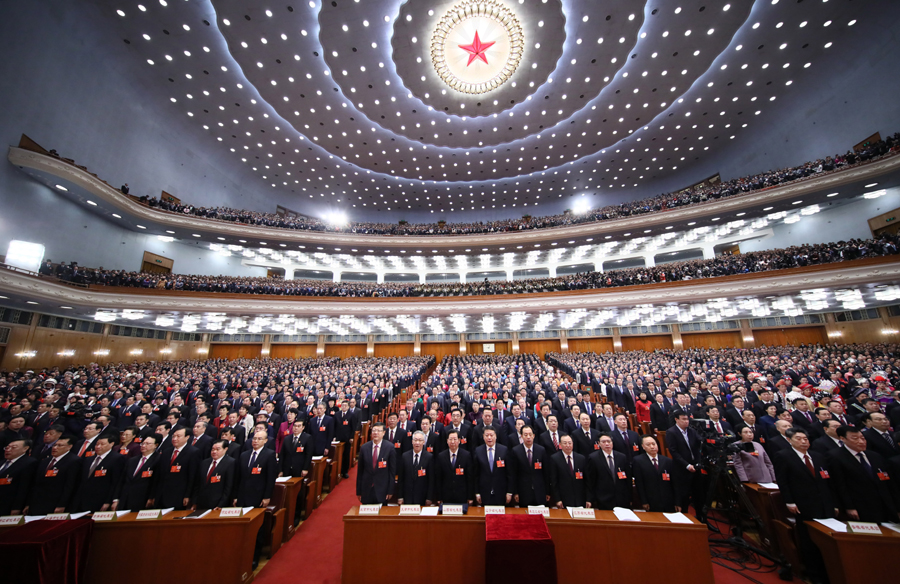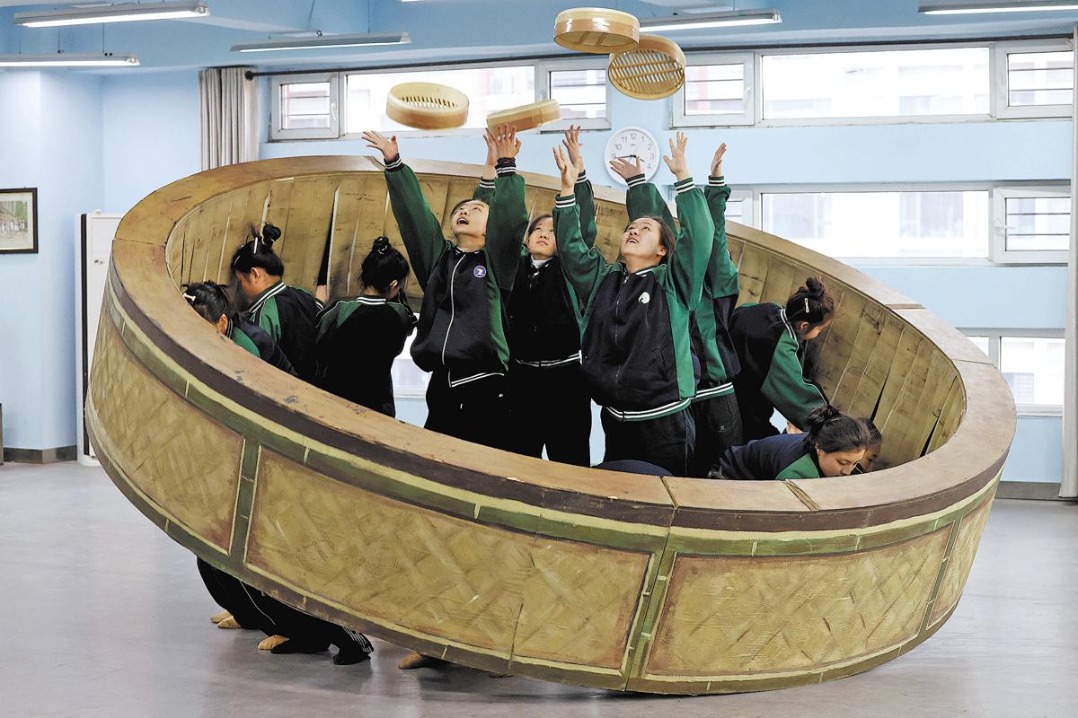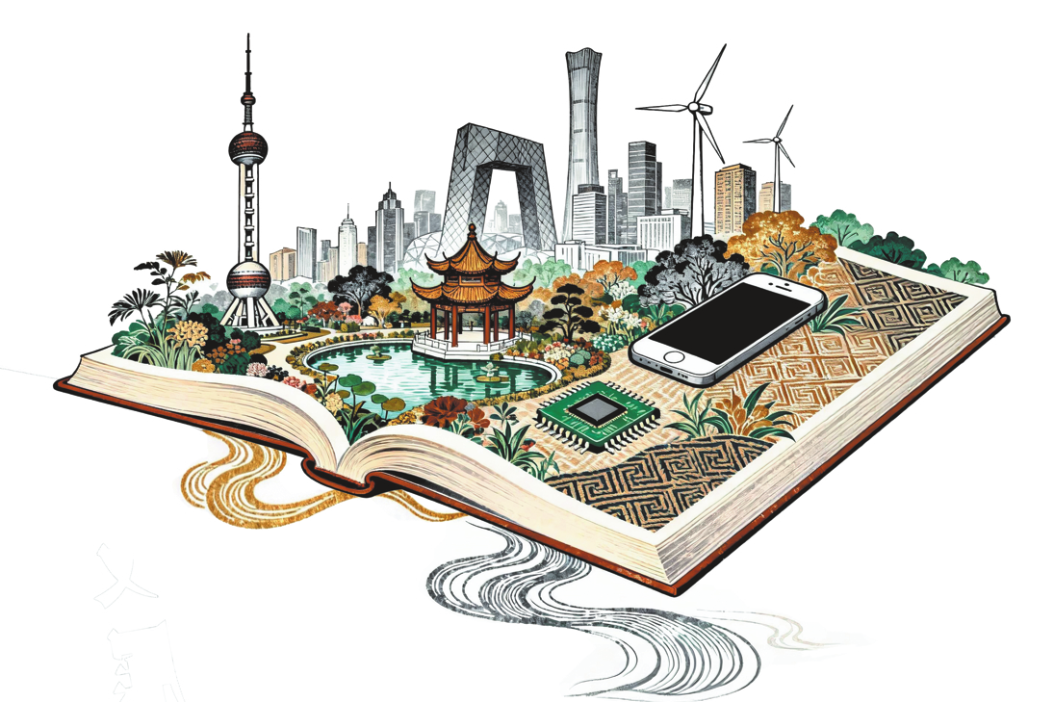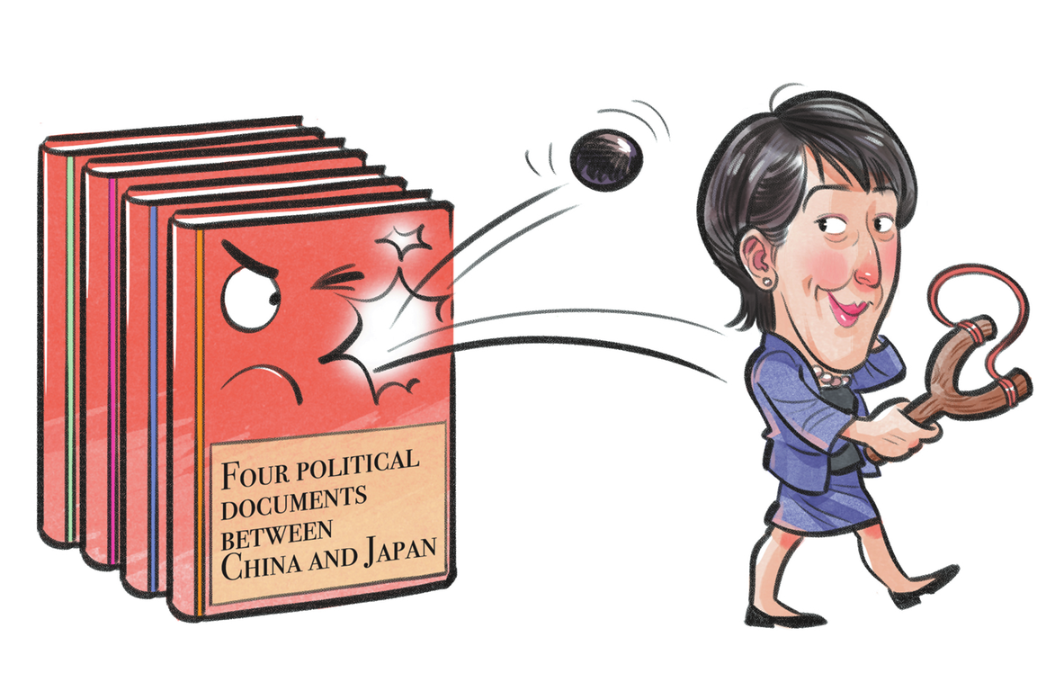Unique political system rooted in China's historical and social soil


Two punctuation marks have generally symbolized the world's impression about China in the 21st century: the exclamation mark and the question mark. The first signifies surprise over a developing country with a huge population and economic aggregate faced with complicated situations maintaining long-term stability and achieving unprecedented development to become the world's second-largest economy and a leading promoter of better global governance. And the second represents curiosity over the secret to China's marvelous development, hoping to understand the inherent logic of China's well-functioning economy and society.
At a time when partisan politics has come to symbolize modern politics, how has the Communist Party of China maintained long-term leadership in China and achieved great successes while the bipartisan and multiparty systems have failed to do the same in the West?
Traditional Western political textbooks don't have the answer to this question. Instead, the ongoing annual sessions of China's top legislature and top political advisory body offer the best window to the outside world to get the answer.
On Sunday morning, President Xi Jinping, who is also the general secretary of the CPC Central Committee and chairman of the Central Military Commission, while meeting with some members attending the first session of the top political advisory body for group discussions, made an important remark on China's political system-that the multi-party cooperation and political consultation system under the leadership of the CPC is China's basic political system. He added that it is a great political invention forged by the CPC, the Chinese people, noncommunist parties and non-party personages, and a new political system that is unique to China.
What constitutes the new type of political system?
First, the system has a more authentic, extensive and lasting representation. China's political system is an outcome of a combination between the Marxist party theory and the country's actual conditions, which can authentically, broadly and persistently represent and realize the fundamental interests of the Chinese people of all ethnic groups, and effectively avoid the shortcomings of the old political system that represented only a minority of the people and a few interest groups.
Second, the CPC has built a united, instead of a viciously competitive partisan, relationship with other political parties. The CPC is not the only political party in China. Several non-communist parties and non-party personages are also part of the political system, and all of them work together to achieve the common goals. Therefore, China's political system has avoided such malpractices as the lack of necessary supervision under one-Party rule or vicious competitions among multiple parties to seize the chance to rule the country.
Third, China has built a more democratic and efficient decision-making mechanism. Through institutionalized, procedure-based and standardized collection of opinions and proposals from all walks of life to promote scientific and democratic decision-making, the CPC-led multi-party cooperation and political consultation system has prevented social divisions.
The new type of political system is a system with roots and a soul. It is rooted in China's historical, social and cultural soil, and conforms to not only the actual conditions in China, but also its unique traditional culture that advocates such concepts as "the whole world is one community", "inclusiveness" and "seeking common ground while shelving differences".
The CPC has always stayed true to its original goal of establishing multi-party cooperation, and advanced political consultation, participation of other parties in State affairs, and democratic supervision to promote more extensive and efficient democracy in China. It is because of this that China has enjoyed a unique systemic advantage and will gather more steam to come out victorious in the struggle in the new era.
China's new type of political system is an important contribution to human civilization, as it offers the world simple but valuable wisdom that a political party must adopt a pragmatic and innovative approach and continuously indulge in self-improvement if it wants to achieve self-development and better govern a country.
The author is an editor with People's Daily, where the article was first published.


































